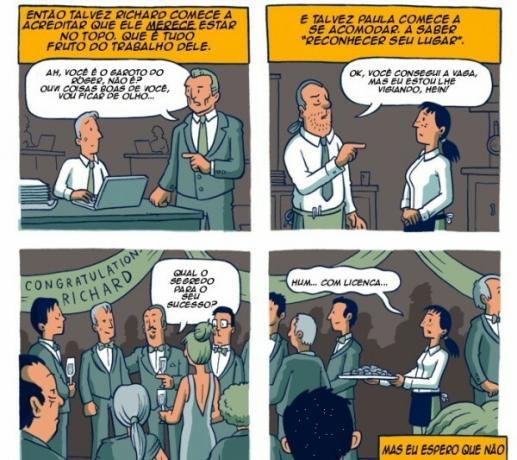The search for the meaning of meritocracy becomes even more relevant at the height of elections. This is because the topic stimulates discussions both in the social sphere and in the political and economic sphere, however it has also been used in the corporate environment.
What is meritocracy? In summary, the term designates a hierarchical system or model, in which awards and achievements are given on the merit of the individual, that is, it is thought that it is his responsibility to stand out, without the help of society, the State and the family.
see more
02/22/22: What does this date mean? What are the effects on our…
What is each washing machine symbol for?
Therefore, according to the dictionary, meritocracy is a management model in which positions are won according to merit, considering knowledge and competence.
After French Revolution and the rise of Napoleon Bonaparte, the new leader considered that the fact that the person came from a noble and bourgeois family would not interfere with public careers. In other words, his origin would not determine his ascension, only his personal effort.
Thought expanded in the 19th century, mainly in Anglo-Saxon countries, being well received by USA.
This ideal ended up spilling over into public policies whose objective was to provide equal opportunities to all citizens. One of them, the most successful, being the Social Welfare State.
However, this concept only makes sense in a society where everyone has the same social, economic and psychological conditions.
The English writer, sociologist and politician Michael Young (1915-2002), upon launching his work The Rise of Meritocracy (1958), was responsible for the word meritocracy.
Latin prefix I deserve (to be worthy, to be deserving) + Greek suffix Kratos (power, strength) = meritocracy
In the novel, Young creates a society that would be evaluated by its merits. However, the action ends up having a negative effect, by increasing the existing discrepancy between the elite and the population.
This is also one of the biggest social criticisms of the model.
It is worth noting that, at the time, the literature criticized the British educational system, as it subjected children to intelligence tests which would decide their professional lives.
Over time, the expression was incorporated by thinkers, politicians, businessmen, entered the core of the discussion of the whole society, for economic purposes, in justice and even in the world of business.

Some scholars, philosophers and sociologists do not look kindly on meritocracy and consider it, in many cases, a means that further increases inequality. This is because, for them, personal, professional or social ascension does not depend solely and exclusively on the effort of the human being, but of external factors.
Therefore, the opportunities that the person has throughout life, such as financial conditions, opportunity to study, personal and professional contacts, will be able to provide you with a privileged position compared to those who did not have the same chances.
Therefore, the central criticism is at the core that one's effort is not the only item to consider success or failure. And these ideals can even potentiate social inequality.
You may also like:
